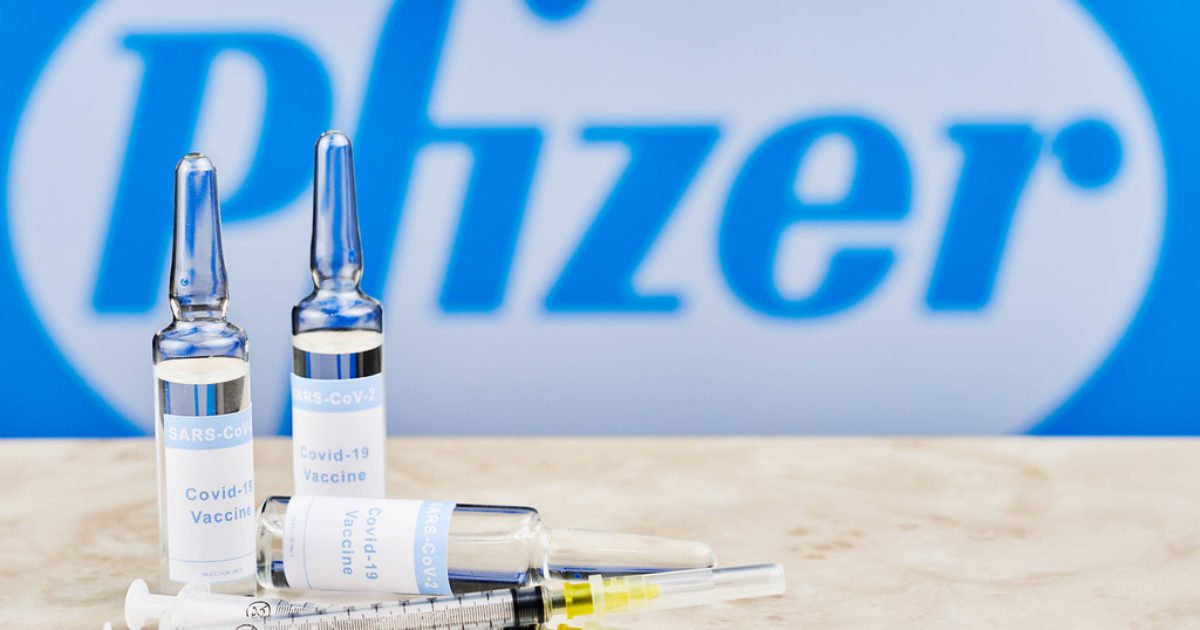“BioNTech AG, a rapidly growing biotechnology company focused on precise immunotherapies for the treatment of cancer and infectious disease, today announced that it has entered into a multi‐year research and development (R&D) collaboration with Pfizer Inc. (NYSE: PFE) to develop mRNA‐based vaccines for prevention of influenza (flu),” a 2018 BioNTech press release states.
BioNTech would receive $120 million in upfront, equity and near‐term research payments from Pfizer and will be eligible to receive up to $305 million in potential development, regulatory and commercial milestone payments and up to double‐digit royalties.
The partnership brought together “Pfizer’s leadership in vaccines with BioNTech’s expertise in mRNA technology.”
Additional info in this Twitter thread:
'The collaboration aims to accelerate development of BioNTech’s potential first-in-class COVID-19 mRNA vaccine program, BNT162, which is expected to enter clinical testing by the end of April 2020. The rapid advancement of this collaboration builds on the research and…
— Caroline Coram (@CarolineCoramUK) February 9, 2021
Full Press release here of the agreement, issued on August 16th 2018. https://t.co/nbhE1045ly At the time BioNTech had been operating for 10 years. https://t.co/RXXW8Pg1Pr. They IPO'd on NASDAQ Stock Exchange October 10th 2019.
— Caroline Coram (@CarolineCoramUK) February 9, 2021
…were at their lowest levels compared with the seven prior flu seasons. For the 2017-18 season, flu vaccination coverage increased with age, from 26.9% among adults 18-49 years to 59.6% among adults ≥65 years (Figure 2).' Sourced from https://t.co/B1x7Z94NZl.
— Caroline Coram (@CarolineCoramUK) February 9, 2021
From BioNTech:
Under the terms of the agreement, BioNTech and Pfizer will jointly conduct research and development
activities to help advance mRNA‐based flu vaccines. Pfizer will assume sole responsibility for further
clinical development and commercialization of mRNA‐based flu vaccines, following BioNTech’s
completion of a first in human clinical study.BioNTech will receive $120 million in upfront, equity and near‐term research payments and up to an
additional $305 million in potential development, regulatory and commercial milestone payments. In
addition, BioNTech will receive up to double‐digit tiered royalty payments associated with worldwide
sales if the program reaches commercialization.BioNTech is an industry leader in mRNA vaccine approaches with validated science, innovative
manufacturing expertise and a broad understanding of the clinical applications of this technology.“Today’s agreement with Pfizer is one of a number of steps that we are taking to rapidly build a
sustainable R&D presence in infectious disease, combining our deep understanding of the immune
system to treat disease with the cutting‐edge technologies and significant infrastructure that we have
built‐up over many years to develop immunotherapy treatments,” said Prof. Dr. Ugur Sahin, Co‐
Founder and CEO of BioNTech. “A significant presence in infectious disease supports our goal of
building a global immunotherapy company that provides more effective and precise immune‐
mediated approaches for the prevention and treatment of serious illnesses, such as the prevention of
flu and the treatment of cancer.”Kathrin Jansen, Senior Vice President and Head of Pfizer’s Vaccine Research and Development Unit
said, “Innovative vaccine approaches are urgently needed to provide improved protection against
seasonal flu, and to respond rapidly and in quantity to pandemic influenza threats. mRNA vaccines
offer a novel approach to code for any protein or multiple proteins, and the potential to manufacture
higher potency flu vaccines more rapidly and at a lower cost than contemporary flu vaccines. BioNTech
is one of the industry leaders in mRNA technology and we are looking forward to working closely with
them to help bring cutting‐edge mRNA influenza vaccines to the market to improve people’s lives.”
The Bill & Melinda Gates Foundation also made significant investments into BioNTech.
This is her funder, the Wellcome Trust. Seems quite cosy with Gates.
I’d call that a conflict of interest. 2/2 pic.twitter.com/f5Rs8KWiF3
— Edmund Kudzayi (@EdmundKudzayi) May 9, 2022
Business Wire reported:
BioNTech SE, a clinical-stage biotechnology company focused on patient-specific immunotherapies for the treatment of cancer and other serious diseases, announced today that it has signed an agreement with the Bill & Melinda Gates Foundation (the Gates Foundation) to develop HIV and tuberculosis programs, further expanding the Company’s infectious disease portfolio. This partnership includes an initial equity investment of $55 million, which is expected to close within the next week. The funds will be used to develop preclinical vaccine and immunotherapy candidates to prevent HIV and tuberculosis infection as well as to lead to durable antiretroviral therapy-free remission of HIV disease. Total funding under the collaboration could reach $100 million through potential future grant funding from the Gates Foundation that would be used to underwrite the evaluation of these candidates in the clinic and support the initiation of new infectious disease projects.
“We are thrilled about the partnership with the Gates Foundation and the outstanding network of infectious disease specialists that it has built,” said Prof. Ugur Sahin, CEO of BioNTech. “Targeting severe infectious diseases such as tuberculosis and HIV infection is in line with our mission to leverage our immunotherapy capabilities not only for cancer but also beyond, in disease areas of high medical need.”
“Despite remarkable advances in global health since 1990, current approaches to preventing and treating tuberculosis – the world’s leading cause of death from infectious disease – and HIV infection remain inadequate,” said Lynda Stuart, Deputy Director, Vaccines and Human Immunobiology, Discovery and Translational Sciences at the Gates Foundation. “BioNTech’s innovative mRNA-based approach and in-depth understanding of the immune system offer exciting pathways to develop effective new immune-based therapies that could dramatically reduce the global incidence of HIV and tuberculosis. We believe this partnership will add to our portfolio of innovative tools and could make a significant impact.”



Join the conversation!
Please share your thoughts about this article below. We value your opinions, and would love to see you add to the discussion!